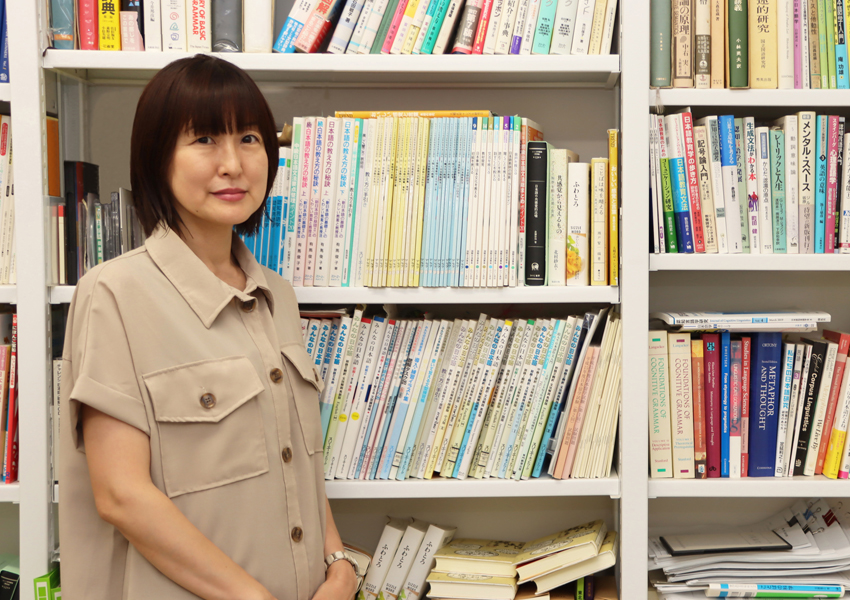Specializing in modern Japanese linguistics (cognitive semantics) and Japanese language education, Dr. Muto researches “synesthetic metaphors” and expressions for the five senses.
Profile
Dr. Ayaka Muto graduated from the Doctoral Course in Japanese Language and Culture in the Graduate School of International Languages and Cultures, Nagoya University. She taught Japanese at Ritsumeikan Asia Pacific University, University of the Ryukyus, and Hiroshima City University, and joined Chubu University in April 2019.
Born in Aichi Prefecture, Japan, Dr. Muto has two cats, and she enjoys spending time with them after she is finished taking care of her children and the housework and exercising. Her favorite food is hearty soup.
Close up with Dr. Muto!
Research Interest
The word “sweet” is an adjective that expresses taste (tasting), but it can also express other senses, such as sweet voice (hearing) and sweet smell (smelling). This diversion of meaning within the five senses is called synesthetic metaphor and is widely found not only in Japanese but also in English and other languages. What I find interesting is that while there is cultural diversity (differences) in these sensory expressions, there is also a commonality (biological universality) among us humans. What aspects are the same across languages and what aspects are different? I am currently conducting research focusing on expressions that express taste. For example, expressions that describe texture (puri-puri, mochi-mochi, etc.), which are common in Japanese and some languages, are not so common in other languages. What do speakers of these languages pay attention to when describing the taste of food? To what extent are people’s thoughts and perceptions influenced by their native language? If you are interested in this topic, please read books on the “Sapir-Whorf hypothesis” (cf. Mutsumi Imai (2010) “ことばと思考,” [Language and Thought], Iwanami Shinsho, etc.). This hypothesis, of course, has many criticisms, but I believe it provides an opportunity to think about the issues of language and cognition. I have received funding from Grants-in-Aid for Scientific Research to conduct research on this topic for the next 5 years (until 2026) along with a researcher of cultural anthropology.

How did you start your research?
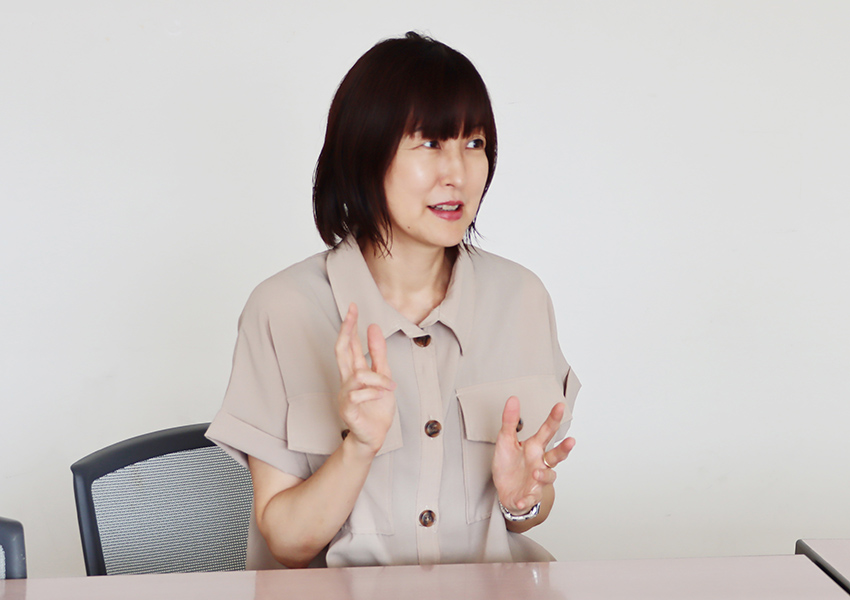
After countless part-time jobs, corporate jobs, etc., I found that reading and writing were the only things I wanted to continue to do. There is a hypothesis, “humans perceive the world through words, and therefore, if the language is different, the way we see the world will be different and cultural differences will arise,” (Takao Suzuki (1973), “ことばと文化,“ [Words in Context], Iwanami Shinsho). However, I came to know about research regarding universality and common evolutionary processes over a range of about 100 different languages, and I became interested in learning more about non-verbal domains and their relationship to language (Brent Berlin, Paul Kaye, translated by Kyoko Hidaka, “基本の色彩語―普遍性と進化について,” [Basic Color Words: Universality and Evolution], Hosei University Press).
As for my work in education, I have been working as a Japanese language instructor for about 20 years, teaching Japanese to international students. I meet people from all over the world, and it’s a very interesting and challenging job, which never gets old.”
About the Department of Japanese Language and Culture
The Department of Japanese Language and Culture has a very comfortable environment for students interested in Japanese language, culture, and literature. The teachers are very warm and kind, and they nurture the individual personalities of each student. The department is discussing the possibility of focusing more on training students in Japanese language instruction for foreigners in the future. Many students enter the Department of Japanese Language and Culture and wish to obtain a license for teaching Japanese to Japanese students, but I would like to encourage students to try their hand at teaching Japanese to foreigners. The number of students whose native language is not Japanese is expected to continue to increase in the future. Even for students who do not wish to become teachers, it is necessary to have some knowledge of how to teach Japanese as a foreign language, since there will be more and more opportunities to come into contact with non-native speakers of Japanese in the corporate world. Of course, those who wish to be active globally in Japanese language education are encouraged to pursue such studies in earnest. In the same way that English and other languages are used as tools, why don’t you acquire “the art of teaching Japanese” as one of your tools to go out into the world? Practical training for Japanese language education is held at the Chinese Culture University (Taipei, Taiwan) and at Chubu University (teaching international students in the Japanese language program).
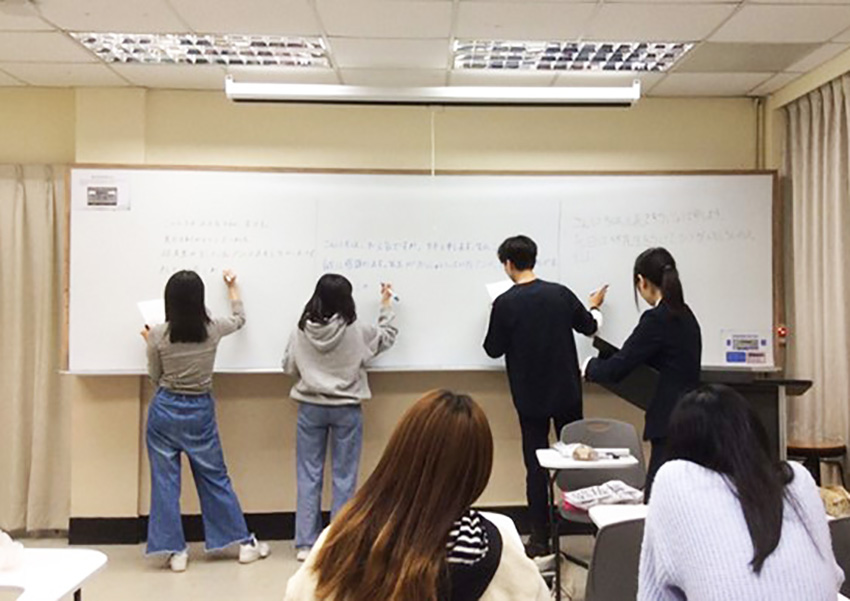
Student Life
I have been blessed in meeting influential people at various turning points in my life. When I was living in New Zealand, I learned about the profession of Japanese language education from my host mother. In addition, in graduate school, I was blessed with a helpful mentor and friends. Even now through my work, I feel every day that I am able to do my job because I am surrounded by wonderful faculty, staff, and students.
Dr. Muto’s Cats
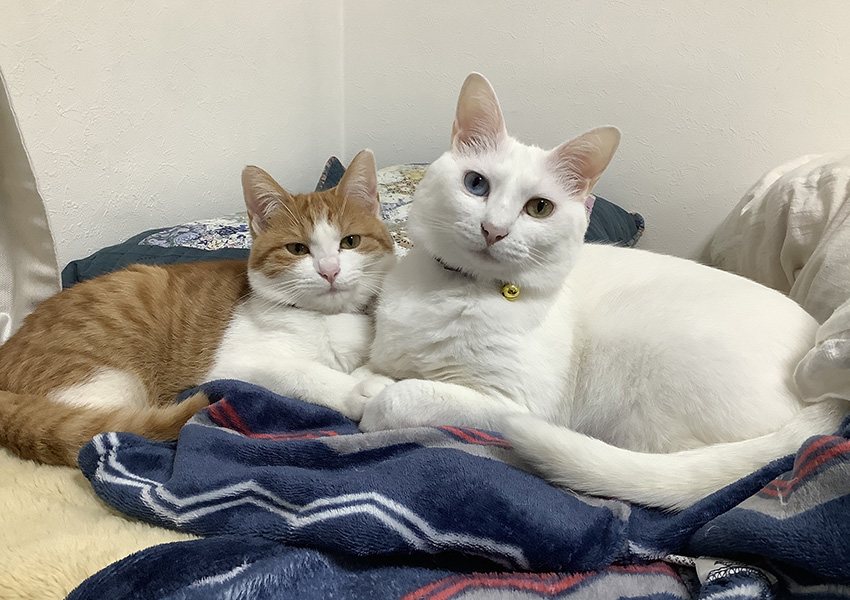
My family got our first cat from a shelter group in Hiroshima, and our second from an organization in Aichi. We were only supposed to have the second cat for a short time through a “caretaker volunteer” program, but we ended up keeping it at our home because we became attached to it. Many cats and dogs are abandoned and killed throughout Japan every year. If you are considering a pet, please consider a shelter cat (dog) before buying one from a pet store. There are many foster homes available on the
Message
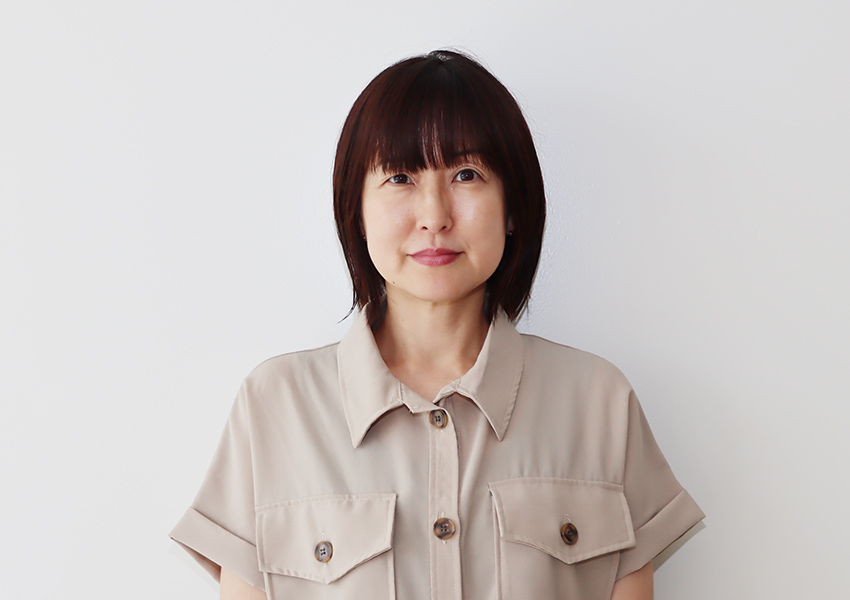
University is the last four years of schooling for most people. After graduating, you will have about 40 years of working life ahead of you. With this in mind, I hope that you will have a variety of experiences and encounters and enjoy your student life without any regrets. I urge you to be active not only in the classroom, but also by participating in overseas study programs and various on-campus activities provided by the university.


